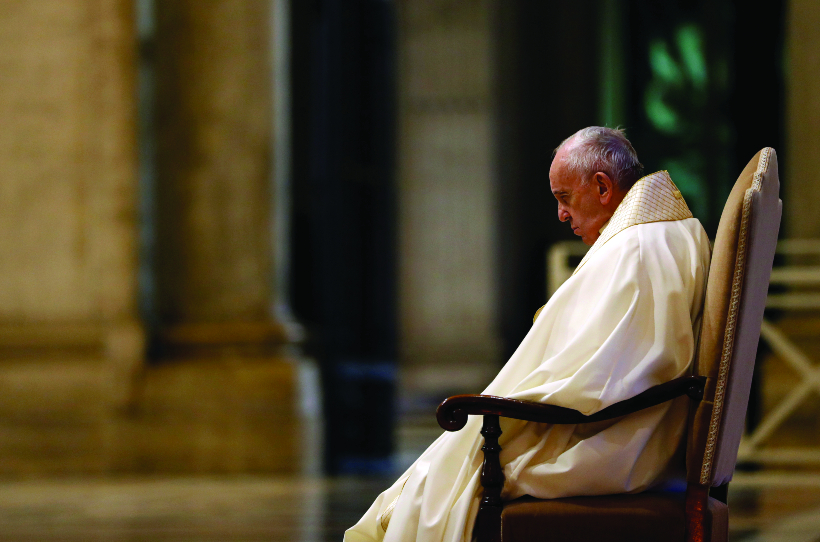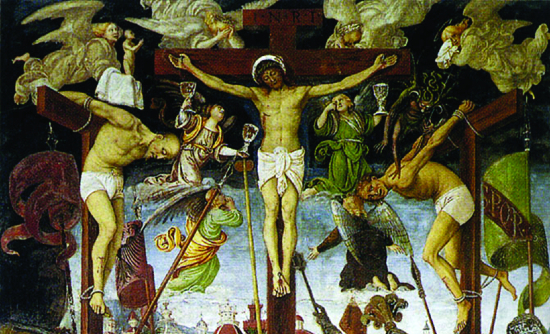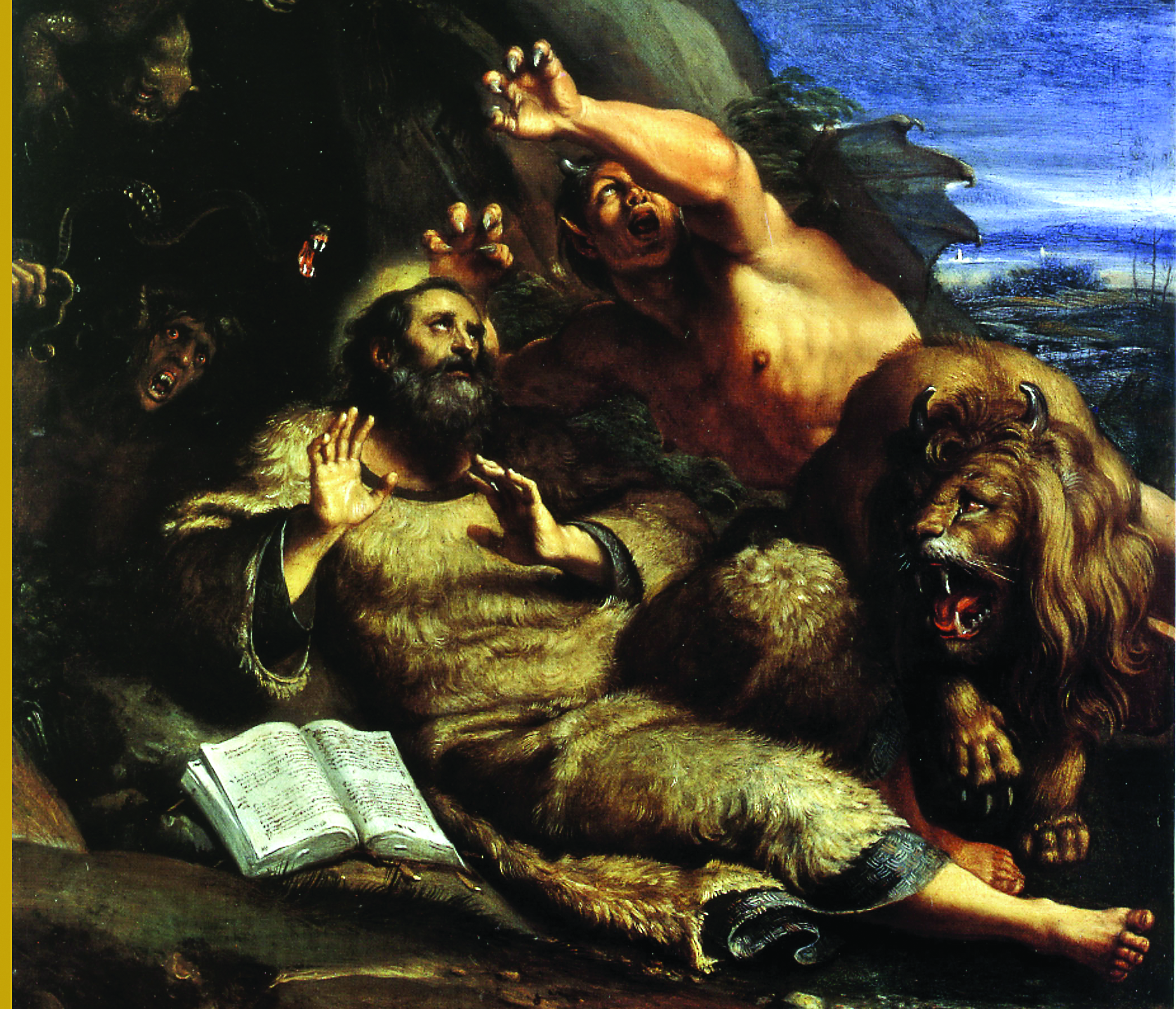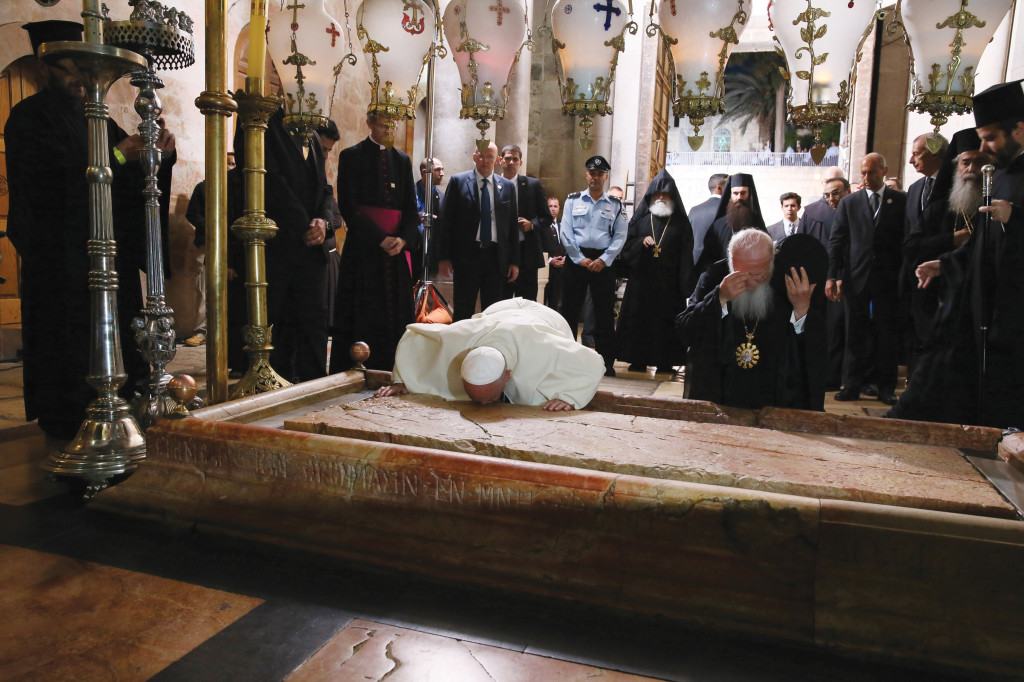Benedict XVI presided at the Good Friday service in St. Peter’s Basilica April 6, and chanted the solemn prayers of intercession for the Church, for himself and for the world, but during the homily he sat and listened.
In fact, the homily was delivered by the preacher of the papal household, Capuchin Father Raniero Cantalamessa.
In his homily, Father Cantalamessa — borrowing an image used by ancient Christian theologians — asked the Pope and others gathered at the Vatican to imagine themselves in a stadium where a courageous man beats a ruthless tyrant. When the battle is over, the courageous man hands the victory crown to his supporters, who spent the entire battle seated in the stands, watching. In Christ’s passion, death and resurrection, that’s what happened, the preacher said.
Christ fought and humanity won.

Benedict XVI venerates a crucifix during the the Good Friday service in St. Peter’s Basilica on April 6, Good Friday.
The Good Friday liturgy of Christ’s passion, he said, is not simply a commemoration of an important event that happened in the past, but should be a prayerful experience that makes Christ’s sacrifice “present and operative.”
However, “we must be careful on this day… not to merit the reproach that the Risen One addressed to the pious women on Easter morning, ‘Why do you seek the living among the dead?’” Father Cantalamessa said.
Christians cannot pretend that they do not know Jesus rose from the dead, he said, but they should attend the Good Friday liturgy and other commemorations of Christ’s passion knowing they are personally involved in the events and that Jesus died and rose to save them today.
Father Cantalamessa used another, more modern story to illustrate his point: An owner of a clothing boutique on Rome’s most fashionable shopping street invited homeless people in to clean themselves up and then choose any clothes they wanted free of charge.
The normal reaction, he said, would be, “This is a fairy tale; it never happens.”
While that might be true among men and women, he said, it is something that can happen each day between God and his creatures.
“This is what happens in a good confession: You take off your dirty rags — your sins — receive the bath of mercy and rise ‘clothed in the garments of salvation, covered with the robe of righteousness,’” the Capuchin said, quoting from the Book of Isaiah.
Like the “good thief” crucified alongside Jesus, he said, people need to confess their sins. Doing so brings “peace of conscience, the possibility of looking at oneself in the mirror or of looking at one’s children without having to have contempt for oneself.”
Pope Benedict spoke briefly later that night at the end of the Stations of the Cross in Rome’s Colosseum. The meditations for the late-night event were written by Danilo and Annamaria Zanzucchi, an Italian couple married for 59 years; they helped establish the Focolare Movement’s New Families initiative and focused their meditations on the sufferings and joys of family life.





Facebook Comments